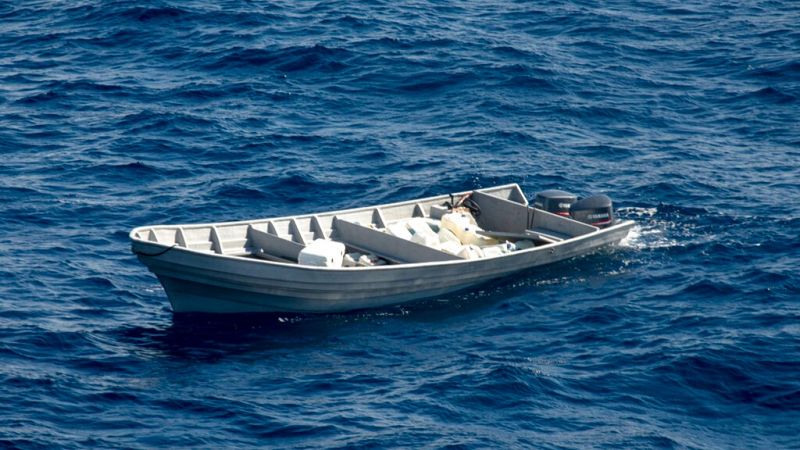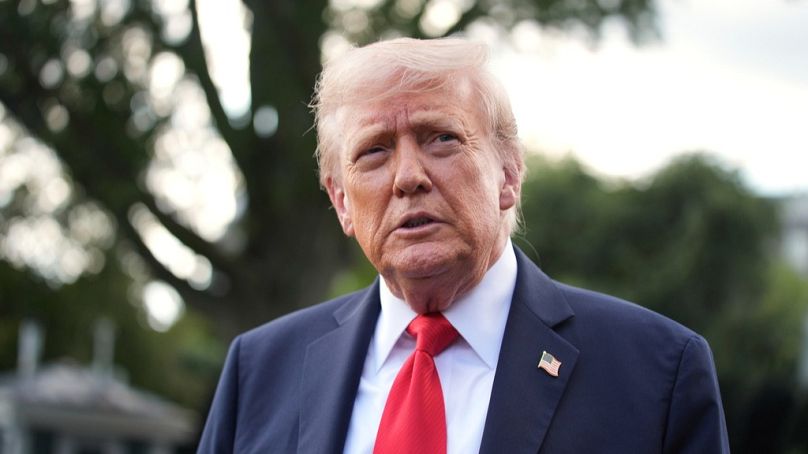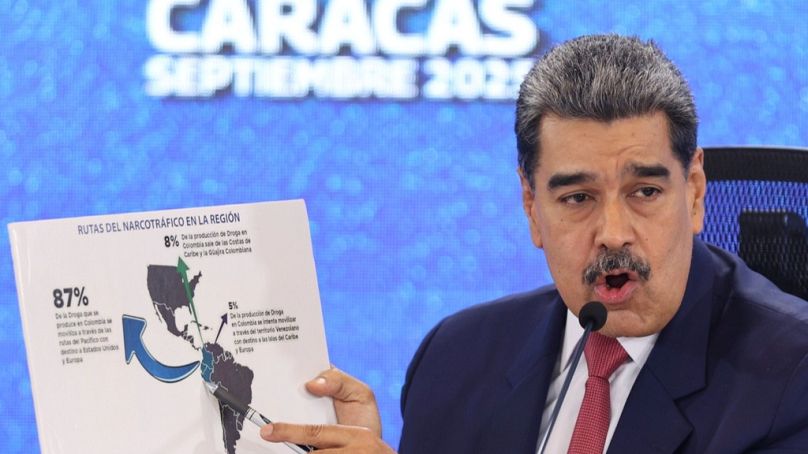Trump warns fight against South American 'narcoterrorist' cartels will escalate

The Trump administration has warned that it could escalate its fight against drug cartels after the US military carried out two deadly strikes on Venezuelan vessels accused of transporting cocaine.
US President Donald Trump announced on Monday that the second airstrike this month on an alleged drug vessel in international waters in the southern Caribbean had killed three "confirmed narcoterrorists from Venezuela".
Two weeks earlier, Trump said that 11 people had been killed in a strike on a boat he claimed was operated by the Tren de Aragua gang and carrying drugs from Venezuela.
Washington has not provided any evidence that the vessels were transporting drugs. In a social media post about the second strike, Trump shared an unclassified video showing a boat exploding and then burning. Euronews could not independently verify the footage.
The strikes mark a dramatic escalation in the Republican administration's effort to stem the flow of narcotics from Latin America and the Caribbean to the US. Washington has reportedly recently beefed up its military presence in the southern Caribbean.
And Trump suggested this week that US military strikes targeting alleged drug smugglers at sea could be expanded to land.
"We're telling the cartels right now we’re going to be stopping them, too," he said. "When they come by land we’re going to be stopping them the same way we stopped the boats."
Trump's remarks were followed by a warning from US Defence Secretary Pete Hegseth to "narco-terrorists" as "enemies of the United States".
"We will track them, kill them, and dismantle their networks throughout our hemisphere — at the times and places of our choosing," he wrote on X, echoing language used by past US administrations during the Global War on Terror in Iraq and Afghanistan.
Earlier this month, Hegseth told Marines and sailors on a US warship off Puerto Rico that they had been deployed as part of a key anti-narcotics operation.
Questions over legality
Several senators, Democrats and some Republicans, have questioned the legality of the recent military action. They see it as a potential overreach of executive authority partly because the US military was used for law enforcement purposes.
Human rights organisations have also raised concerns that the strikes may have violated international law. The White House has offered very little information about how the operations came together or the legal basis on which they were carried out.
The Trump administration has claimed self-defence as a legal justification for the first strike, arguing the drug cartels "pose an immediate threat" to the nation.
There is also the danger that any strikes in Venezuelan territory could provoke an escalatory response from the country's armed forces, according to Geoff Ramsey, a senior fellow at the Atlantic Council.
"So far, the United States has carefully avoided striking any target that could destabilise the country or risk provoking an internal armed conflict," he wrote last week.
Separately, the Trump administration this week added five countries — including Venezuela and neighbouring Colombia — to a list of nations it says are failing to tackle the drug trade.
During a press conference on Monday, Venezuelan President Nicolás Maduro criticised the US government.
He accused the Trump administration of using drug trafficking accusations as an excuse for a military operation whose intentions are "to intimidate and seek regime change" in the Latin American nation.
Meanwhile, Colombian President Gustavo Petro said this week that Colombia was being penalised after sacrificing the lives of "dozens of policemen, soldiers and regular citizens, trying to stop cocaine" from reaching the US.
Today



